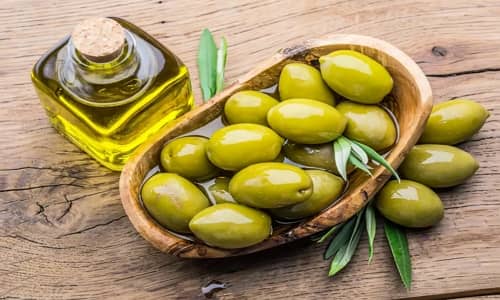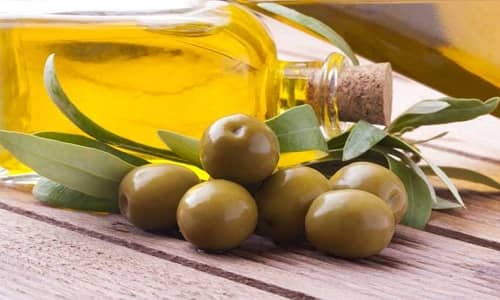Olive Benefits, Calorie, Side Effects
Olive Nutrition

| Olive (100g) Nutrition | |||
| Carbohydrate | Protein | Fat | Calories |
| 8g | 1g | 9g | 103kcal |
| Main Nutrition | Beta -carotene, vitamin A, vitamin C | ||
| Main Benefits | Improves heart health and reduces stress | ||
| Side Effects | Patients with high blood pressure should be careful about intake as it contains a large amount of sodium. | ||
Olives are small fruits that grow on olive trees. The healthy fats in olives are extracted to produce olive oil, one of the key ingredients of the incredibly healthy Mediterranean diet. Some immature olives are green and turn black when ripe. Others remain green even when fully ripe. Olives are very rich in vitamin E and other powerful antioxidants. Studies show it’s good for the heart and may help prevent osteoporosis and cancer.
2. Olive Benefits

1. Heart Health
The phytocompounds in olives may improve vascular function by increasing nitric oxide production, which promotes blood flow to tissues. Olives are full of monounsaturated fatty acids, a type of fat that has been linked to lowering bad LDL cholesterol while maintaining good HDL cholesterol. The powerful antioxidant properties of olive polyphenols may protect against oxidative stress and chronic diseases, which are major early factors in inflammation and heart disease. It also lowers the risk of heart attack, high blood pressure, and cardiovascular disease.
2. Brain Health
Olives help reduce oxidative stress due to their anti-inflammatory effects, thus protecting the tissues of vital organs such as the brain from harmful and potentially irreversible damage. Olives also contain vitamin E, an antioxidant that has been linked to improved cognitive performance and reduced risk of cognitive decline, and eating olives helps reduce the risk of Alzheimer’s disease.
3. Anti-inflammatory effect
Chronic inflammation plays a role in many diseases, including rheumatoid arthritis and psoriasis. Olives may help reduce chronic inflammation and relieve these and other symptoms. Olives contain antioxidants that have been shown to help with chronic inflammation. Oleanolic acid and hydroxytyrosol, two types of antioxidants found in olives, are effective in reducing inflammation.
4. Anticancer Effect
The fact that olives are a food rich in antioxidants and have anti-inflammatory properties makes them naturally protective against cancer, as chronic oxidative stress and chronic inflammation can be key factors in the development of cancer. When cells become overwhelmed by oxidative stress and chronic excessive inflammation, the risk of cellular cancer increases. Olives can help you avoid the dangerous combination of chronic oxidative stress and chronic inflammation by providing a wealth of antioxidants and anti-inflammatory nutrients.
4. Anticancer Effect
Olives’ low calories may help you lose weight. In particular, it contains fiber, which can help relieve constipation and keep you feeling full longer.
3. Olive Storage
4. Olive Side Effect
- Most olives are pickled in salt and are high in sodium, which can raise blood pressure, so people with high blood pressure are advised to avoid excessive consumption.
- Excessive consumption of olives may cause symptoms such as indigestion, abdominal pain, and diarrhea.